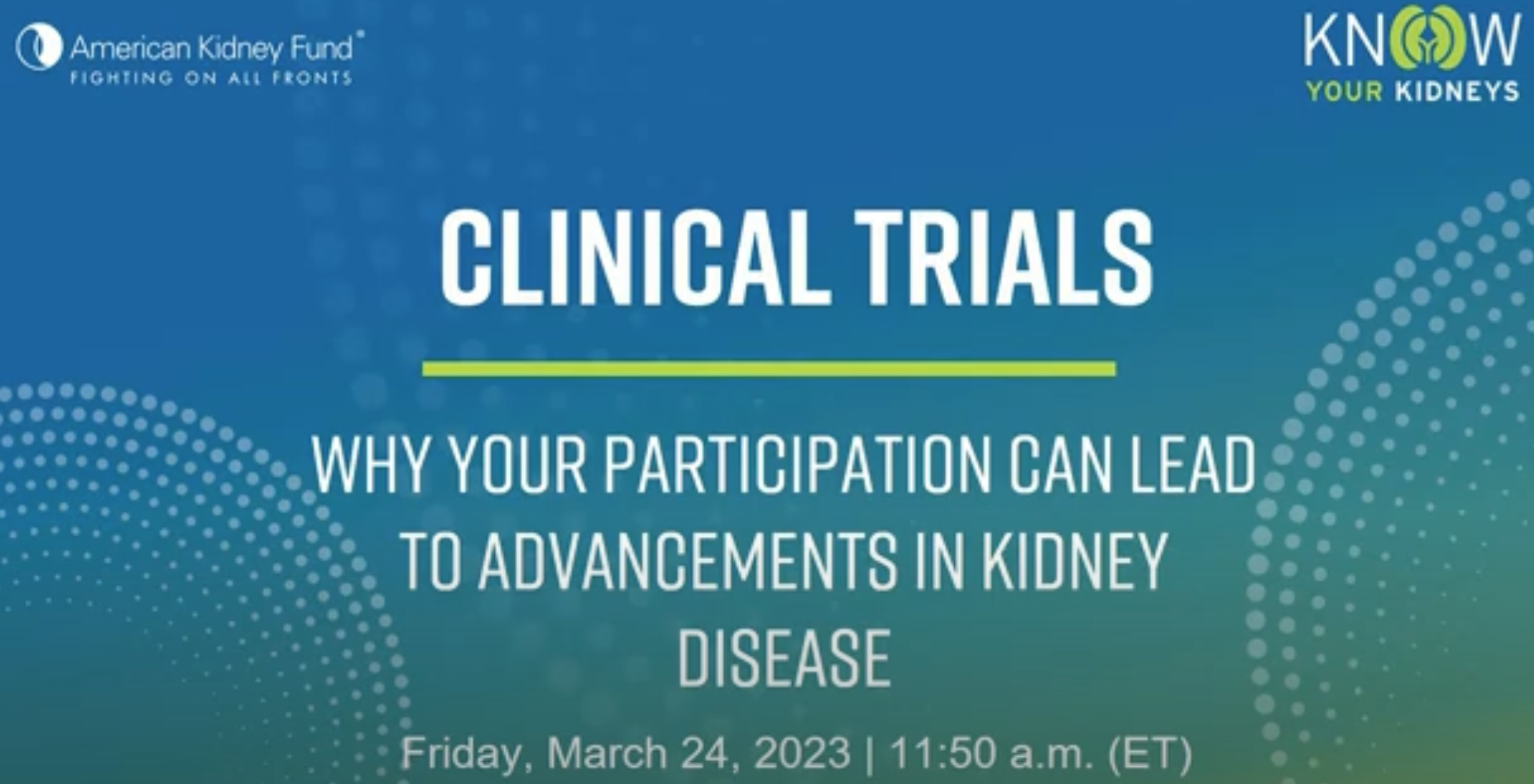Webinar recap: Kidney Action Week webinar featuring Antidote’s Rich Towne, PharmD

The annual Kidney Action Week is a virtual event put on by the American Kidney Fund designed to bring the entire kidney health community together for a week of amazing and informative content on all things related to kidney health. The event is filled with discussions, Q&As, webinars, and more — and this year, Antidote was thrilled to be involved!
Dr. Richard Towne, Antidote’s Senior Clinical Informatics Manager, was invited to speak on a panel to discuss the impact of patient participation in clinical trials on kidney disease research. Moderated by Burgess Harrison, Executive Director of the National Minority Health Association, other panel guests included Dr. Anika Lucas, a nephrologist and clinical researcher at Duke University, and Curtis Warfield, who was diagnosed with chronic kidney disease (CKD) in 2012 and is now on the Board of Directors for the National Kidney Foundation of Indiana and Home Dialyzors United.
Read on for more information about the discussion, or watch the video of the webinar below.
Key messages regarding clinical trials from kidney action week
To start the conversation, Dr. Lucas provided an overview of what clinical trials are and how they can be helpful to the kidney health community. Additionally, she shared data regarding the low participation rates among minorities and women — for example, although Black and Latino communities have the highest rate of kidney disease, these groups have the lowest research study participation rates.
While this can be attributed to a general mistrust in some regards, she also highlighted the barriers to clinical trial participation that might disproportionally impact these groups, such as travel requirements, transportation availability, site operating hours, and more. She also noted that community outreach is often lacking, meaning that the general public is less likely to know about trials taking place.
After Dr. Lucas’ presentation, Burgess Harrison proceeded to ask the panel questions regarding the importance of diversity in medical research, why patients choose to participate in trials, and how healthcare providers can remove key barriers to increase inclusion among study participants. The panel members emphasized that medications are more likely to be trusted by communities of color if they are researched with participants of color, and highlighted how important it is that healthcare providers are able to answer questions about both specific studies and the clinical trial process in general.
Following this discussion, Rich was able to demo Antidote’s clinical trial search tool, Match™, to showcase how patients can easily find studies for which they may be eligible. By pulling data from ClinicalTrials.gov and translating the medical jargon into patient-friendly language, Antidote makes it easy for people to find trials in a simplified way.
After the demonstration, patients were able to ask questions directly to the panel regarding how a clinical trial may impact their treatment plan, who to contact with questions, and how to determine if a trial is a good fit for them. If you’re a patient interested in learning more about participating in a clinical trial, our blog How clinical trials work can provide a good starting point. If you’re interested in seeing clinical trials that you may be eligible for, click the button below to get started.
Topics: For Patients
